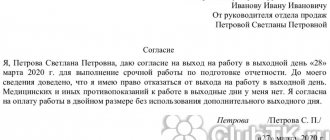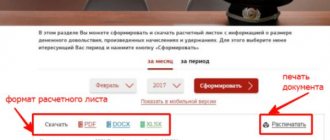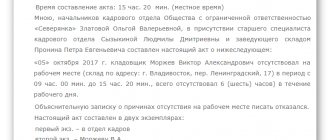What is registration according to the Labor Code of the Russian Federation
Today, the Labor Code of the Russian Federation establishes a clear sequence of actions that the parties must perform in order for the labor relationship to be officially recorded. The basic principles of labor law are also recorded. It is worth highlighting the following basic points:
- registration of labor relations is carried out voluntarily. No one has the right to force a citizen to do work that he does not like;
- forced labor is prohibited. Any discrimination in the field of labor relations is also prohibited;
- the state helps citizens find employment and takes measures to eliminate unemployment;
- each work must be paid in an amount no less than that established at the state level;
- The relationship between the employer and the citizen being hired must be contractual. Stons initially clearly know the boundaries of their rights and powers, the violation of which may result in legal liability.
Based on the listed principles, the beginning of the employment procedure provides for a certain sequence of actions included in the Labor Code of the Russian Federation. This included:
- Writing an application for employment.
- Issuance of an order to enroll the company's employees.
- Signing of an employment contract by the parties.
- Familiarization of the new employee with job and work instructions, legislation, regulations, regulating issues in the field of activity of a particular employee.
The absence of a written employment contract concluded in accordance with the rules of the Labor Code of the Russian Federation is a serious violation. This entails administrative and, in some cases, even criminal liability.
In this case, individual entrepreneurs can expect:
- a fine of up to 10 thousand rubles if the entrepreneur fails to register the employee in a timely manner;
- if the violation is repeated, the fine will increase to 40 thousand rubles, or the activity may be stopped for up to 90 days;
- criminal liability if the employment relationship was carried out for a long period of time (from several months) without registration.
For legal entities:
- a fine on the company in the amount of up to 100 rubles;
- when a foreigner is illegally employed, the company faces a fine of up to 1 million rubles;
- individual fine to the manager up to 20 thousand rubles;
- repeated violations – the administration’s fine increases to 200 thousand rubles, the manager can be fired under the article and, in addition, disqualified for up to 3 years.
How are labor relations regulated?
Several documents regulating labor relations.
The regulation of labor legal relations is carried out directly by the provisions of the current labor legislation, as well as legislative norms that ensure the regulation of labor protection and a number of other legal acts containing relevant provisions related to labor law.
All mentioned normative legal acts are divided into acts having the status of federal significance and acts having the status of local significance.
Documents required when applying for a job according to the Labor Code of the Russian Federation
Labor Code of the Russian Federation in Art. 65 provides a list of documents that are required to be presented by a person applying for an official job. These include the following papers.
- Identification document of the applicant. Usually this is a passport. The law allows for the provision of other documents that satisfy the same purpose, but does not disclose which ones. In practice, documents containing a photograph of the owner and basic information about him can serve as such identification:
- foreign passport - will be accepted from foreign citizens or non-residents of Russia;
birth certificate - if for some reason a child under 14 years of age is employed;
- military ID - for military personnel, starting with the rank of warrant officer or midshipman;
- refugee certificate - for people who have lost their documents as a result of social disasters, who received an immigrant document by applying for refugee recognition;
- certificate of release from prison - if an employee released after a prison term is employed;
- certificate that the bearer has been granted temporary asylum in Russia;
- driver's license - in some cases can replace a passport.
- A military registration document will be required if the applicant is liable for military service or is subject to conscription into the Armed Forces. For those who have completed military service and are in the reserves, this is a military ID or a certificate issued in exchange for it. Future conscripts present a certificate stating that they will be conscripted for military service. If the applicant cannot provide such a document, he should not be denied employment for this reason. The personnel officer has the right to make an appropriate note in the personal file and inform the military registration and enlistment office about the employed potential conscript.
- A document indicating the training completed (diploma, certificate, certificate of advanced training, they may also ask for an insert sheet with grades).
It is needed to confirm the qualifications and professional level of the future employee when the job requires special training. FOR YOUR INFORMATION! To confirm the level specified in the documents provided, the employer has the right to assign the employee a probationary period or additional certification and make an employment decision based on the results. - Employment history. Needed if a person changes jobs. You may not have a work book on hand if:
- this is the citizen’s first official employment;
- a person gets a part-time job;
- the work book is lost or damaged.
- SOOPS card is a certificate containing the SNILS number if the person is registered in the pension insurance system. In some cases it will not be possible to provide it:
- SNILS has not been issued before (the person has not officially worked anywhere);
- the card is lost;
- Personal data (last name) has changed since the card was issued.
IMPORTANT! Of the entire list of documents specified in Article 65 of the Labor Code of the Russian Federation, only this one is absolutely necessary when applying for a job. Its absence is an absolute reason for refusal of employment. All other documents may be required under certain circumstances, and sometimes you can do without them.
We invite you to familiarize yourself with what you need to drive someone else’s car.
IMPORTANT! The legislation of the Russian Federation prohibits requiring any additional documents from a person applying for a job.
What is remote work and how is admission to it applied?
Remote work is a new form of labor relations in Russia. There are many questions regarding its design, regime, and rights of remote workers from both applicants and employers.
We have prepared an article that describes the features of remote work from a legal point of view. If you want to find such a job or hire remote employees, be sure to read the article to the end. You will learn about all the nuances and your rights, as well as pitfalls.
What is remote work from the point of view of the Labor Code of the Russian Federation?
Remote work means that the employee performs his duties not on the employer’s premises and uses the Internet to work and communicate with management. In practice, this means that he can work from home, a cafe, coworking space or other place, although there are restrictions here.
For example, it is now popular to recruit remote operators for call centers. A prerequisite for employment is the ability to make calls in a quiet place.
Relations between an employee and an employer are regulated by the norms of the Labor Code of the Russian Federation, namely main 49.1. A contract for remote work can be permanent or fixed-term (concluded for a certain period, for example, one year).
Remote work allows you to hire talented employees from any region, reduce office rental costs and other costs, and allow employees to find profitable work without having to move to another city, for example, Moscow.
Remote, remote and home work: what's the difference?
Home work and remote work are official, enshrined in legislation
definitions. According to the Labor Code, home-based work is performed at home on the basis of a concluded contract (Article 310 of the Labor Code of the Russian Federation). Remote work is work outside the employer’s location and without his constant control (Article 312.1 of the Labor Code of the Russian Federation).
Hiring procedure
Registration of employment is carried out in several stages. They can be grouped into separate blocks:
- Preparation of documents. The legislator has outlined an exhaustive list of documents required for employment. This included a passport, identification code, military ID, insurance certificate, work book, education document (if the position requires certain qualifications), medical certificates of health (also when the position provides for certain criteria for the health of the applicant).
- Introductory stage. Usually carried out in the form of an interview with the employer (his representative). The purpose of communication is to familiarize the future employee with working conditions, payment, and social guarantees. His duties, rights, responsibilities. At this stage, the citizen decides for himself whether he agrees to such working conditions.
- Employment registration stage. In this case, an application for employment is written, an order for hiring is prepared and signed by the employer, and the parties sign an agreement. The employee is officially introduced to the labor regulations, collective agreement, job and work instructions.
- Registration of the employee by the personnel and accounting department. Occurs without the participation of the employee. At this stage, a personal file is opened, an account is opened in the accounting department, a bank card is issued, and the workplace is prepared to be able to fully perform the functions assigned to it.
Confirmation of the fact of registration of labor relations is the publication of an order (instruction) of the employer. This happens after writing and reviewing an application for employment, preparing and signing an employment contract. In other words, the applicant has already become familiar with his main responsibilities at his future job and is ready to perform it.
The order has the following basic information:
- Name of the organization where it is issued. Title “By personnel” (this detail is indicated to distinguish it from general office work and relate it to personnel office work).
- Date, place of compilation, serial (registration) number.
- Full name of the citizen who is being employed.
- Full name of the position to which the applicant is appointed.
- The level of official salary (tariff rate) for a specific position where a citizen is assigned.
- Working hours (shift, daily, half-time)
- Position, signature, transcript of the signature of the official signing the document.
- A line for the newly hired employee to become familiar with this document.
Specifics of civil law relations
The peculiarities of formalizing labor relations through a civil contract are explained by the transfer of responsibility to the zone of civil law.
It is beneficial for the employer to register personnel in this way, since costs are significantly reduced and some of the obligations provided for by labor legislation are eliminated. The relationship between the employer and the civil contractor is not subject to regulation through internal regulatory documentation, but depends solely on the obligation of one of them to perform a certain amount of services within a specified time and the obligation of the other to accept and pay for the work done.
Moreover, unlike payment under an employment agreement, payment of monetary remuneration under the GPA is not regular, but is made depending on the fact of the work being carried out.
And these are not all the disadvantages that an employee registered under a civil law contract will experience.
He will be very surprised when he does not receive:
- Disability benefits.
- Main and additional leave.
- Monthly advance and salary on the due date.
- Compensation payments upon dismissal and severance pay upon dismissal from a position.
- Payment for time spent on improving qualifications.
In addition, information about his work under the GPA will not be entered into the work book, and the director will be able to terminate the agreement unilaterally at any time, without even giving arguments in favor of the decision.
Civil contracts take place in the sphere of labor relations, but their use must be justified by one of the following reasons:
- the employer lacks the authority to conclude an employment contract due to the fact that he is an individual;
- a worker is hired to perform a volume of work that can be calculated, described and expressed in the form of a material result.
The list is not complete, these are the most common reasons for concluding a civil contract or a service agreement.
Going to work for the first time in my life
If a citizen was not officially employed, then his first employer has the right to require only an identity card from him. A diploma and military ID will be needed only in cases where the job requires special training and the applicant himself is liable for military service. The remaining documents will be prepared for the employee by the employer after the conclusion of the employment contract:
- work book – within 5 days after employment;
- SNILS - within several weeks required to issue the card (up to a month).
What law introduced electronic work books?
The main regulatory act regulating the transition to electronic work books is Federal Law No. 439-FZ dated December 16, 2019 (hereinafter referred to as Law No. 439-FZ).
Let us immediately make a reservation that the term “electronic work book” is not used in this law - we are only talking about the possibility of refusing to maintain a paper work book, since all information about work will now be duplicated in electronic form and stored on the servers of the Pension Fund. In this regard, the legislator allowed the use of this information instead of a paper work record book both when applying for employment and when applying for a pension. It is this information that we will further call “electronic work book” or abbreviated “ETK”. Compose HR documents using ready-made templates for free
According to the provisions of Law No. 439-FZ, the process of abandoning the maintenance of paper work books will take at least a year. And although legislators have provided a fairly detailed algorithm that employers and employees must adhere to, ambiguities still remain. We have prepared a cheat sheet that tells you what, how and when to do to switch to ETC.
Additional documents due to the specifics of the work
Some specialties and positions associated with certain legal requirements require documentary evidence of the applicant's personality characteristics. The Labor Code of the Russian Federation and certain regulations provide for such professions some additional documentation, which the employer has the right to request during employment:
- a driver's license of the appropriate category (if the employee is applying for a position that involves driving a certain type of transport);
- medical record (required when holding a position in the teaching, medical, trade fields, as well as for catering workers);
- work permit issued by the Federal Migration Service - for citizens of other states who are getting a job in Russia;
- a recent certificate of medical examination (form 086-U) confirming the absence of contraindications for the specified professional activity - for types of work associated with health hazards or in unfavorable conditions, as well as for all minor applicants;
- a certificate of no criminal record and/or criminal prosecution (possibly about rehabilitation after such) is needed for some positions that provide restrictions on this basis, for example, for work in the judicial system.
We invite you to familiarize yourself with the Contract for welding work with an individual
Other ways to formalize working relationships with employees
The legislation of the Russian Federation establishes the mandatory registration of labor relations in accordance with the Russian Labor Code. In principle, it is allowed to attract labor in other ways, but only with certain reservations:
- Formalization of cooperation with individual entrepreneurs. This option is beneficial to both parties - the employer does not pay social insurance, the employee receives a profit. These transactions allow you to formalize one-time work and long-term commercial interaction.
- Conclusion of civil law transactions. Commercial enterprises can sign contracts for the provision of services for a fee with individuals, and in this way attract workers to carry out one-time short-term work (sewage cleaning, air conditioner repair). But if the supervisory authorities determine that the citizens who signed the agreement are performing a work function. They will force the employer to enter into a legally required agreement and restructure the relationship with employees. Additionally, the state labor inspectorate has the right to impose administrative penalties on a company that does not employ its workers.
- Distant work. At its core, this is a normal relationship between employer and employee, formalized by an appropriate contract. This option differs from the usual method of employment only in the location of the employee’s place of work (he works at home) and in the way he communicates with the employer (the Internet or telephone is used for this purpose).
- Outsourcing. This method of attracting labor should not be confused with outstaffing. The first option means sending an employee to perform actions in another organization on the basis of a civil agreement between commercial enterprises. In this case, the person works in the interests and under the control of the company with which he has an employment contract, but performs his duties outside its location. The second term means placing employees under complete subordination to a third-party organization. In this situation, work duties are performed in the interests of a company that did not enter into a contract with the employee. This method of employment is recognized by law as agency labor and has been prohibited by the Labor Code since May 2014.
Signing an employment contract
At every enterprise, regardless of the type of ownership, an agreement is concluded between the employee and his employer. The absence of such a document is fraught with penalties against the employer. Therefore, the administration is directly interested in the timely preparation of such documents. Moreover, in most cases, there are already templates for such contracts for each position in order to speed up the employment procedure.
This document contains information:
- list of worker responsibilities;
- the place of work, work and rest schedule, and basic conditions of remuneration are specified;
- liability of the parties for failure to comply with the terms of this agreement;
- separate norms (in a condensed form) of local documents regulating labor duties, social protection, guarantees, compensation, and other important points for the employee.
An employment contract is signed by the employer and employee. Labor legislation does not provide for other signatories or approvals.
In addition to obligations, responsibilities, basic information about work, payment and social guarantees, this document must also have clear information about the parties that signed it. So that they can be specifically identified in the future.
Comparison of employment and civil law contracts
Main differences between an employment contract and a civil law contract
| Sign | Employment contract | Civil contract |
| Subject of the agreement | Performing a labor function | The result of performing work or providing services |
| Possibility of involving 3 persons in the work | Impossible | Maybe |
| Compliance with internal labor regulations | Necessarily | Not necessary |
| Conditions for performing work | The employer is obliged to provide the employee with appropriate working conditions | The employer is not obliged to provide the employee with any conditions for performing work |
| Documentation | After drawing up the contract, it is necessary to draw up a large number of documents for the employee: an employment order, staffing table, vacation schedule, personal card, work record book and SNILS (if the employee is getting a job for the first time), etc. | After execution of the contract, only an act of acceptance of work or provision of services is drawn up |
| Salary size | The salary cannot be less than the established minimum wage per month. The contract is considered invalid if it does not indicate the salary amount | The amount of payment is established by the contract and is not tied to the minimum wage; its indication in the contract is not necessary |
| Salary payment procedure | At least 2 times a month | The payment procedure is determined by the contract |
| Contract time | As a general rule, it is indefinite. In exceptional cases, a fixed-term contract may be concluded | Urgent only. The absence of a term in the contract makes it invalid |
| Possibility of extending the contract period | Maybe | Impossible |
| Tools to get the job done | Provided by the employer. An employee, in agreement with the employer, can use personal property, but in this case he is compensated for the wear and tear of this property | The employee uses his own funds to perform work (provide services) |
| Procedure for terminating the contract | An employee can only be dismissed for certain reasons. The employee himself has the right to terminate the employment contract at his own request. | The procedure for terminating the contract is provided in the document itself. There are no special conditions for its termination for both the employee and the employer. |
| Liability for failure to fulfill obligations stipulated by the contract | Administrative liability is provided for the employer, and disciplinary liability for the employee (discipline, reprimand, dismissal). There are no penalties for the employee | Penalties for the employee may be provided for by the terms of the contract. If the employer does not pay on time and does not accept the work, he is obliged to pay the employee interest for the use of other people's money. |
| Taxation | Income tax and insurance contributions to extra-budgetary funds for the employee are paid by the employer | If the agreement is concluded with an individual entrepreneur, personal income tax and he pays contributions independently |
More details about the types of civil contract, its pros and cons for the employer and employee can be found here.
The employer may ask
The list of required documents does not contain direct references to many papers that often have to be presented in practice at the request of the employer. Of course, failure to provide these documents should not lead to denial of employment, and if it does, it can be challenged in court. But it’s worth considering whether to start cooperation with litigation.
- Application for admission. It will be written by the employee when registering according to the template established in the organization. Sometimes it’s enough just to fill out and sign a standard form with standard details:
- Full name and position of the employer;
Full name of the future employee and his address;
- title of the document – statement;
- request to be accepted for a specific position in a particular structural unit in a specific organization;
- Features of employment - part-time, work for a full-time salary or a share of it, part-time, for a certain period, etc.;
- signature and full name decryption;
- date of writing.
- Photos (usually they ask for 3 pieces in 3x4 format) will be required for registration of a personal file, employee personal card, work pass, etc.
- The form is also filled out during the registration process. May be needed for internal use.
- Certificate of salary from previous place of work. Providing this document in its entirety is in the interests of the applicant, since if he goes on sick leave with minimal work experience in a new place, he may receive increased payments in connection with calculations based on previous earnings.
- A reference from a previous employer, especially one that portrays the applicant in a favorable light, will increase his chances of employment and better working conditions, all other things being equal.
- Additional evidence of qualifications: certificates of relevant courses, certificates of certification, certificate of academic degree, etc.
- Documents about family composition are sometimes needed for additional guarantees from the employer or to provide the employee with certain benefits (for example, financial assistance, additional leaves, etc.).
- Any documents that may affect social benefits and compensation:
- pregnancy certificate;
- certificate of a large family;
- certificate of presence of young children or close relatives with disabilities;
- certificate of donation;
- certificate of work in a radioactive contamination zone;
- state awards, etc.
The job application will be filed in the employee’s personal file, which will be completed by HR officers.
NOTE! The wording of the position indicated in the application (as well as subsequently in the employment contract, work book and other documents) must coincide verbatim with that indicated in the staffing table.
It is legally prohibited when applying for a job to require documents that are not provided for by the regulations of the Russian Federation: the Labor Code, federal laws, government decrees and presidential decrees. Naturally, it is unlawful to refuse a candidate on the basis of the lack of such documents. However, employers often insist on the mandatory presence and provision of the following during employment:
- TIN – certificate of registration of a citizen as a taxpayer;
- permanent registration (registration) in the region where the employer’s organization is located.
Whether to try to insist on one’s rights and try to fight the system or to agree to the employer’s demands, in each individual case the person decides for himself.
Young specialist, or Admission without testing
In September, after final exams and a short summer vacation, personnel services have a special category of workers - young specialists. Perhaps one of them will become your employee. Today we will talk about the features of hiring yesterday’s graduate, as well as the preparation of his personal documents.
Having chosen one or another applicant, the company's management, as a rule, experiences slight doubt: “What kind of specialist comes to the company? How effective will his work be? To test the professional and business qualities of a new employee, a far-sighted employer sets a probationary period. If the newcomer passes the test, he will remain in the team, if he fails, he will be fired under Article 71 of the Labor Code of the Russian Federation (Article 71 “Result of the test when hiring” of the Labor Code of the Russian Federation).
The situation is completely different when hiring a young specialist.
A young specialist is an employee who has graduated from an educational institution of primary, secondary or higher vocational education and has entered work for the first time in his specialty.
The Labor Code prohibits establishing a test for this category of workers (Article 70 of the Labor Code of the Russian Federation). If, contrary to the requirements of the law, the employer nevertheless arranges a professional inspection, the employee can easily challenge this decision by complaining to the court or a legal inspector. At the direction of the competent authorities, he will be recognized as hired without testing.
Employment contract
Registration for a job of a young specialist, like any new employee, begins with the conclusion of an employment contract. In the employment contract, do not forget to indicate all the essential conditions of future work (Article 57 of the Labor Code of the Russian Federation). For example, a specific workplace, work function, working hours and rest hours, wages, etc.
Do not forget that many graduates who graduated from secondary vocational educational institutions (colleges, technical schools) were not yet 18 years old when they entered the workforce. This means that, by law, they have the right to preferential working conditions, in particular to a shortened working day (Article 92 of the Labor Code of the Russian Federation), extended annual leave (Article 267 of the Labor Code of the Russian Federation), reduced production standards (Article 270 of the Labor Code of the Russian Federation) .
When registering, do not require a written statement from the employee; his consent to work in your company is already expressed in the employment contract
According to the rule provided for in Article 67 of the Labor Code of the Russian Federation, an employment contract is concluded in writing. It is drawn up in two copies, each of which is signed by the employee and the employer. One copy of the document remains with the company’s HR department, the other is given to the employee.
Since you are hiring a person who has not yet acquired the necessary work experience and has no idea how to behave in a work environment, spend a little more time talking with him. Explain to the newcomer what an employment contract is, what the role of this document is in the relationship between the employee and the organization, and what is the responsibility for violating the terms of the contract. A young specialist must have a clear understanding of his responsibilities and his “labor mission.”
In support of probation
The rule of law prohibiting the establishment of a test for graduates came to us from the old Labor Code. For that time, such an attitude was justified. All educational institutions, including professional ones, belonged to the state. Education was carried out according to a unified State Standard, students were guaranteed a certain level of professional training. The employer could be sure that a young engineer who graduated from, for example, an energy university would be able to deal with basic problems in the electrical system. Why bother him with additional checks?
With the advent of private universities and colleges, such confidence disappeared. Today, the quality of training in a number of educational institutions leaves much to be desired. Therefore, when hiring a young specialist, the organization takes a certain risk.
State Duma deputies decided to protect the interests of the employer. Currently, amendments to the Labor Code are being prepared to allow testing of newly minted specialists for professional suitability.
Order in form T-1
So, you have entered into an employment contract with a young specialist. From this moment on, a relationship has arisen between you and your new employee that requires further documentation. Of course (in accordance with Article 68 of the Labor Code of the Russian Federation), issuing an order for employment in the unified form T-1 (Approved by Resolution of the State Statistics Committee of Russia dated January 5, 2004 No. 1.).
When preparing the document, remember that we are talking about a young specialist. And supervisory authorities show special interest in this category of workers. Therefore, the order (as well as other personnel documents) must be drawn up flawlessly.
Employment history
This is the main document confirming the employee’s length of service and work activity. Has a standardized form. Conducted according to government-approved methodology. It is compiled for each worker individually.
We suggest you familiarize yourself with How to fill out a job application form
The work book displays the following data:
- name of the employer's company;
- date of employment (dismissal);
- full name of the position to which the employee was assigned (transferred);
- date and number of the order on the basis of which the enrollment (dismissal) was made;
- incentives available to the employee.
All records are certified by the signature (with a transcript of the position name and full name) of the employee authorized to maintain work records, as well as the company seal. The absence of these details may cause the entries to be invalidated.
According to the rules for maintaining work books, all entries are entered sequentially and numbered in continuous numbers. If you change place of work, maintaining the work book continues at the new place of work. For the entire period that an employee is on the company’s staff, his work record book must be kept in the HR department. Handing over this document to the worker is not allowed.
Probation
To check the suitability of an employee for the position to which he is appointed, the employer may establish a probationary period. This must be stated in the employment contract. The conditions and duration of the test are established. If there are no such formulations initially, then the citizen should be considered as having been accepted on a permanent basis.
The maximum probationary period for workers is three months. For economic, engineering, and management employees, the test period can be up to 6 months. If the employment contract is concluded for a period of no more than six months, the trial period should be no more than two weeks. After the end of this period, if the employee has not been dismissed, he should be considered to have passed the test.
But there are categories of citizens for whom tests are not established. This list included:
- minors (under 18 years of age);
- pregnant women, as well as mothers with children under one and a half years of age;
- persons who have passed the preliminary competition for appointment to this position;
- university graduates in the field of study;
- citizens elected to office;
- if employment is carried out by transfer;
- when the term of the employment contract is less than 2 months;
- in other cases provided for by law.
Features of employment of certain categories of employees
https://www.youtube.com/watch?v=f6RLx-1E2Q4
During the hiring process, not all employees are processed the same way. There are some exceptions to the general rule. They concern the following categories of hired workers:
- Minor employee. The peculiarity of the employment of such a citizen is that he does not have the right to set a probationary period. In some cases, written parental consent is required for such a citizen to begin performing labor functions. A medical examination with conclusions about the suitability of future work is mandatory here.
- Foreign worker. To hire such a worker, you will need to obtain special permission from the state for his employment. Issued for a specific period (usually up to 3 years). It may be further extended. Therefore, the employment contract is concluded for the same period.
- Part-time work. Provides the opportunity to work two jobs simultaneously. In this case, the work book is kept at the main place of work. Working time at the main place of work must be at least 50% of the total working time. If a citizen works two jobs where the time does not overlap (for example, one during the day and the other during night shifts), this is not considered part-time work. It is issued (except for the work book) at both places of work.
- Nuances of registering as a remote employee. The main nuance is that you don’t have to go to the HR department with documents. All you need to do is scan them and send them by email. In the future, you can get certified copies by regular mail. You will also receive an employment contract signed by the employer. All further correspondence and communication, including delivery of completed work, is carried out remotely via the Internet.
The procedure for registering labor relations
The state guarantees freedom of labor and protects the rights of working citizens.
Legal guarantees are established by law, one of which is the formalization of labor relations. Documenting the rules in the field of permanent work is a way of monitoring compliance with law and order. A ban on unofficial hired labor, compliance by commercial enterprises with social guarantees and labor protection rules, a special dismissal procedure - such benefits cannot be obtained without consolidating relationships in the field of employment, so it is worth knowing the conditions for legally concluding transactions with the employer.
Working according to the labor code, your working hours will not be more than you agreed upon when applying.











